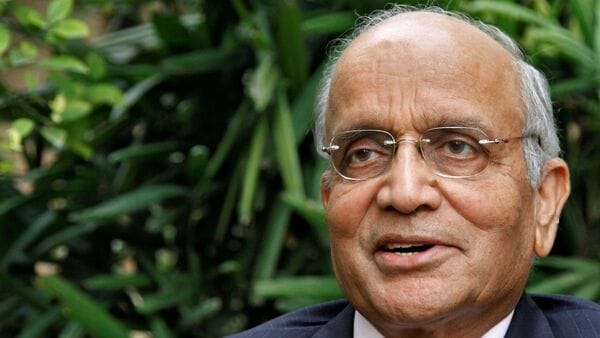- R C Bhargava has called India’s CAFE-3 norms “biased” toward heavier vehicles, urging a fair, India-specific approach that supports both emission reduction and affordable small cars.

View Personalised Offers on
R.C. Bhargava, Chairman, Maruti Suzuki India, raised strong objections to India’s draft Corporate Average Fuel Efficiency (CAFE) norms, calling them “inappropriate” for the Indian market. Speaking on the recently proposed CAFE-3 standards, Bhargava said that the framework was originally designed in Europe for larger, powerful vehicles. The chairman highlighted that this makes the norms unsuitable for India’s predominantly small-car segment, as per a recent BusinessLine report.


What Are CAFE Norms?
The Corporate Average Fuel Efficiency (CAFE) regulations set limits on the average fuel consumption and carbon dioxide (CO2) emissions of a carmaker’s overall fleet. The goal is to improve fuel efficiency and reduce pollution by pushing manufacturers to develop cleaner and more efficient vehicles.
India adopted its first phase of CAFE norms in 2017, followed by the second phase in 2022. The proposed CAFE-3 norms, expected to take effect from April 2027 to March 2032, are being framed by the Bureau of Energy Efficiency (BEE) under the Power Ministry.
Also Read : New CAFE 3 norms proposed plan to incentivise small cars, hybrids
Bhargava’s criticism: A system favouring bigger cars
In his comments, Bhargava said the current system was biased in favour of large and heavy vehicles. He argued that the framework, based on European templates, inherently benefits premium carmakers by setting lenient targets for heavier models while making compliance harder for compact cars.
“The norms of CAFE, as they have been framed, actually favour bigger cars. As weight decreases, the norms become less and less favourable for smaller cars,” Bhargava said, adding that such bias was unjustified for a market like India where small cars form the majority. He questioned how a regulation designed to improve efficiency could do so effectively when it allows greater leniency for larger, higher-emission vehicles.
Bhargava emphasised that policy should remain neutral, ensuring a level playing field. “There should be no discrimination in favour of or against any class of vehicle unless the government explicitly declares such intent,” he said.
Also Read : Maruti Suzuki e Vitara to launch on December 2. Check details
Ongoing policy debate
The industry remains divided over the new draft. The Society of Indian Automobile Manufacturers (SIAM) has submitted its feedback to the BEE but failed to reach a consensus.
Manufacturers such as Maruti Suzuki India, Toyota Kirloskar Motor, Honda Cars India, and Renault India have supported provisions that protect small-car efficiency targets. On the other hand, Tata Motors, Mahindra & Mahindra, Hyundai Motor India, and Kia India have backed weight-based relaxations that benefit larger vehicles.
A step in the right direction
Bhargava noted that while the latest CAFE-3 draft, revised in September after an initial version in December 2024, includes corrections to better represent smaller vehicles, it remains an incomplete fix. “It’s not a full correction of the CAFE norms, but at least it’s a beginning,” he said, describing the inclusion of small-car considerations as “a small step in the right direction.”
Get insights into Upcoming Cars In India, Electric Vehicles, Upcoming Bikes in India and cutting-edge technology transforming the automotive landscape.
First Published Date: 13 Nov 2025, 20:12 pm IST







